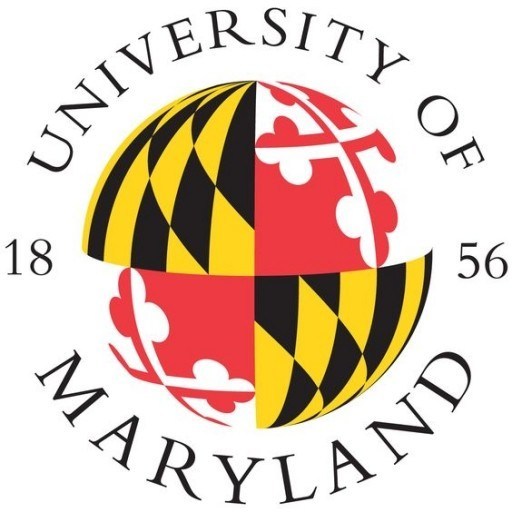Photos of university / #americanpublicu
The Bachelor of Science in Accounting at American Public University is a comprehensive undergraduate program designed to prepare students for successful careers in the accounting and finance industries. This program offers a rigorous curriculum that combines foundational accounting principles with practical skills necessary for analyzing financial data, preparing financial statements, and understanding complex fiscal regulations. Students will explore core topics such as financial accounting, managerial accounting, auditing, taxation, and business ethics, providing a solid understanding of how accounting functions within various organizations. The program emphasizes the development of critical thinking, analytical skills, and ethical judgment, which are essential qualities for accountants in today’s dynamic business environment.
Through a combination of theoretical coursework and practical applications, students will gain proficiency in accounting software tools, financial analysis techniques, and regulatory compliance standards. The program also encourages the development of strong communication skills, enabling graduates to effectively present financial information to stakeholders. In addition to core accounting courses, students have the opportunity to explore related fields including management, economics, and information systems, broadening their understanding of the business landscape. The flexible online format ensures that students can balance their education with professional and personal commitments while gaining access to faculty with real-world experience.
Graduates of the Bachelor of Science in Accounting program are well-equipped to pursue entry-level positions in public accounting, corporate finance, government agencies, or non-profit organizations. The program also provides a solid foundation for those interested in pursuing advanced certifications such as CPA (Certified Public Accountant) or CMA (Certified Management Accountant), which can enhance career prospects and professional development. With industry-relevant coursework, experiential learning opportunities, and a focus on ethical practice, this program prepares students to meet the challenges of the evolving accounting profession and make meaningful contributions to their organizations and communities.
The Bachelor of Arts in Accounting program at American Public University provides students with a comprehensive education in the fundamental principles and practices of accounting and finance. This program is designed to prepare students for a successful career in various accounting roles, including financial accounting, managerial accounting, auditing, and taxation. Throughout the course of study, students will develop a strong understanding of accounting principles, financial reporting, ethics, and regulatory requirements. The curriculum emphasizes practical skills such as analyzing financial statements, using accounting software, and understanding the broader economic and legal context of financial decision-making.
Students will explore core topics including financial accounting, managerial accounting, government and nonprofit accounting, auditing, and tax accounting, gaining an in-depth knowledge of how organizations track, manage, and report their financial information. The program also covers essential topics like ethics in accounting, internal controls, and current regulatory environments, which are critical for maintaining transparency and integrity in financial practices. Additionally, students will study the use of technology in accounting, such as Enterprise Resource Planning (ERP) systems and other accounting software, to prepare them for current industry standards.
Throughout the program, students are encouraged to develop critical thinking, analytical skills, and attention to detail—qualities essential for success in the accounting profession. The curriculum includes a blend of theoretical coursework and practical application, often through case studies, simulations, and projects that mirror real-world scenarios. This approach helps students gain confidence and competence to handle complex financial data and make informed decisions.
American Public University also emphasizes ethical conduct and professional standards, preparing students to uphold integrity and accountability in their careers. The program is flexible and online, allowing students to balance their studies with personal and professional commitments while gaining access to world-class resources and faculty expertise. Upon graduation, students will be equipped with the knowledge and skills necessary to pursue various certifications, such as Certified Public Accountant (CPA), Certified Management Accountant (CMA), or Chartered Accountant (CA), depending on their career goals.
Overall, the Bachelor of Arts in Accounting at American Public University provides a robust and practical education designed to foster the skills, knowledge, and ethical grounding necessary for success in the dynamic field of accounting. Graduates will be prepared to contribute effectively to their organizations and advance in the accounting profession.
Program requirements for the Bachelor of Science in Accounting at American Public University include completion of 120 credit hours, encompassing general education, core business courses, and specialized accounting classes. Students must successfully complete foundational courses such as Introduction to Accounting, Principles of Management, Principles of Marketing, and Business Law. Prerequisites for advanced accounting courses typically include introductory courses in accounting principles and mathematics. The program emphasizes the development of quantitative, analytical, and ethical decision-making skills essential for accounting professionals. Students are expected to complete courses in Intermediate Accounting, Cost Accounting, Federal Income Tax, Auditing, and Financial Accounting to build a comprehensive understanding of accounting practices and principles. To ensure practical skills, the curriculum incorporates case studies, simulations, and internship opportunities when available. Additionally, students are required to participate in capstone projects that synthesize learning and prepare for real-world application. The program encourages the study of accounting software and technology, including familiarity with QuickBooks, Excel, and other industry-standard tools. To graduate, students must achieve a minimum GPA requirement stipulated by the university, typically around 2.0, and complete all coursework within the prescribed time frame. The university also recommends that students gain relevant work experience through internships or part-time positions to enhance employability upon graduation. Some programs may require the completion of a strategic management or business ethics course towards the end of their studies. Overall, the program aims to prepare students for careers in public, private, or governmental accounting, including preparation for certification exams such as the CPA, depending on state licensing requirements.
The financing options for the Accounting program at American Public University include a variety of federal and institutional financial aid opportunities designed to assist students in covering tuition and related expenses. Eligible students can apply for federal grants such as the Pell Grant, which provides need-based assistance for undergraduate studies. The university participates in federal student loan programs, offering Direct Subsidized and Unsubsidized Loans to qualified students to help manage their educational costs over the duration of their studies. Additionally, students may explore private student loans from external lenders, which can be used to supplement federal aid when necessary.
American Public University also offers institutional scholarships based on merit, need, or specific criteria such as command sponsorship for military personnel, veterans, and first responders. Military students and their dependents may also benefit from tuition assistance programs provided through the Department of Defense, including Tuition Assistance (TA) and the GI Bill, which can significantly reduce out-of-pocket expenses. The university encourages students to contact the financial aid office early in their application process to explore all available funding options and ensure timely assistance.
In some cases, students may benefit from employer tuition reimbursement programs, where their employer covers a portion or all of the education costs upon completion of coursework. The university provides detailed guidance and resources for students to understand eligibility requirements and application procedures for various financial aid programs. It is important for students to complete the Free Application for Federal Student Aid (FAFSA) each year to determine their eligibility for federal grants and loans. Financial planning is a key component of the educational experience at American Public University, and the university offers counseling services to help students develop personalized financial strategies.
Overall, the university strives to make higher education accessible through a combination of federal aid, institutional scholarships, military benefits, and flexible payment options. Prospective and current students are encouraged to review the detailed financial information provided on the university website and consult with financial aid advisors to maximize available resources. By leveraging these diverse funding opportunities, students pursuing an accounting degree can focus on their academic goals without undue financial burden.
The Bachelor of Arts in Accounting at American Public University is designed to provide students with a comprehensive understanding of accounting principles, financial management, and business operations. This program prepares graduates for careers in various accounting roles, including financial analyst, auditor, tax specialist, and accounting clerk. Throughout the coursework, students will gain expertise in accounting information systems, auditing procedures, and financial reporting standards, enabling them to effectively analyze and interpret financial data. The curriculum emphasizes critical thinking, ethical standards, and the practical application of accounting techniques in real-world scenarios. Students will also develop valuable skills in using accounting software and managing financial records, which are essential for employment in today's technologically advanced business environment. The program is structured to be flexible and accessible, with online courses that allow students to study at their own pace and balance their studies with personal and professional commitments. Instructors are experienced professionals with backgrounds in the accounting industry, offering students insights into current practices and industry standards. The degree program also aims to prepare students for professional certifications such as the CPA (Certified Public Accountant), CMA (Certified Management Accountant), and CIA (Certified Internal Auditor). Students are encouraged to participate in internships or practical projects to gain hands-on experience, enhancing their employability upon graduation. Upon completion, graduates will have a solid foundation in accounting principles, financial management, and ethical practices, enabling them to contribute effectively to the financial health and transparency of organizations. The university supports students with various resources, including career services, academic advising, and access to online library materials, to ensure their academic success and professional development. The Bachelor of Arts in Accounting is ideal for individuals seeking a flexible, affordable online education that prepares them for entry into the accounting field or further graduate study.









